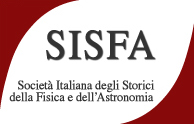Speaker
Description
Galileo never developed a systematic theory of heat, nor of the atomic structure of matter. All we know about can be derived from his correspondence with Giovan Francesco Sagredo (1612-1615), from Il Saggiatore (1623), from Benedetto Castelli's letter to Ferdinando Cesarini (1638), and from Vincenzo Viviani's Racconto istorico (1654). The limits and unresolved issues of Galilean atomism have already been discussed by scholars. My paper is focused on Galileo's mechanistic-corpuscular account of heat and related phenomena as effects produced by subtle, sharp, and mobile minima of fire penetrating the inter-atomic vacua of material substances. The hypothesis was not original, the connection between heat and motion at microscopic level belonging to the tradition of ancient and early-modern corpuscularianism. Galileo's specific contribution is to be found in his indirect quantification of heat released or acquired by a material body, given the impossibility of a direct method to measure the amount of fire corpuscles emitted or absorbed. Such an attempt exposed Galileo to challenging objections from his contemporaries: if hot bodies did not seem to be heavier than cold ones, heat must not be identified with fire itself, but with the effects of igneous atoms streaming through larger particles. The conceptual shift towards studying the action of fire on material bodies in terms of measuring their temperature, by means of the already-known phenomenon of thermal dilatation, was the key step leading to Galileo's thermoscope (c. 1603) and to its first medical application as graduated (proto-)thermometer by Sanctorius in the 1610s.

